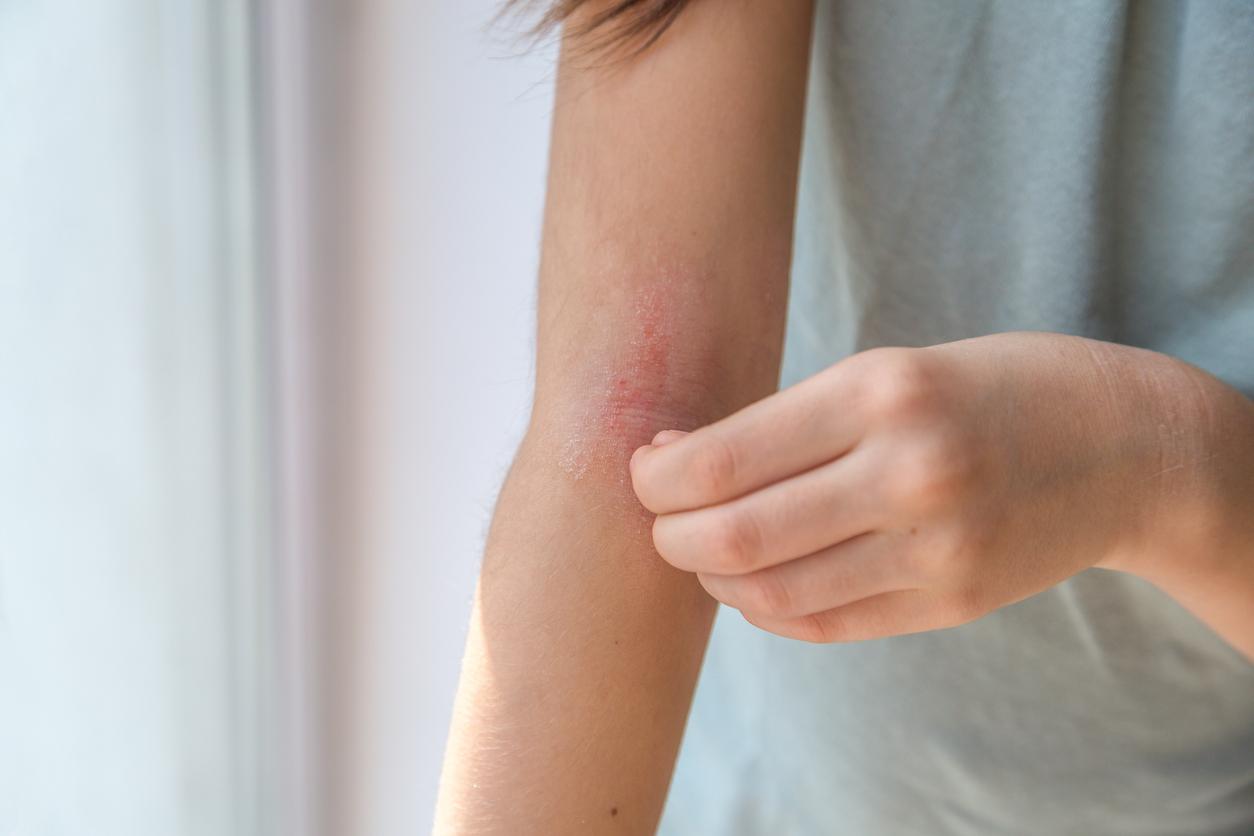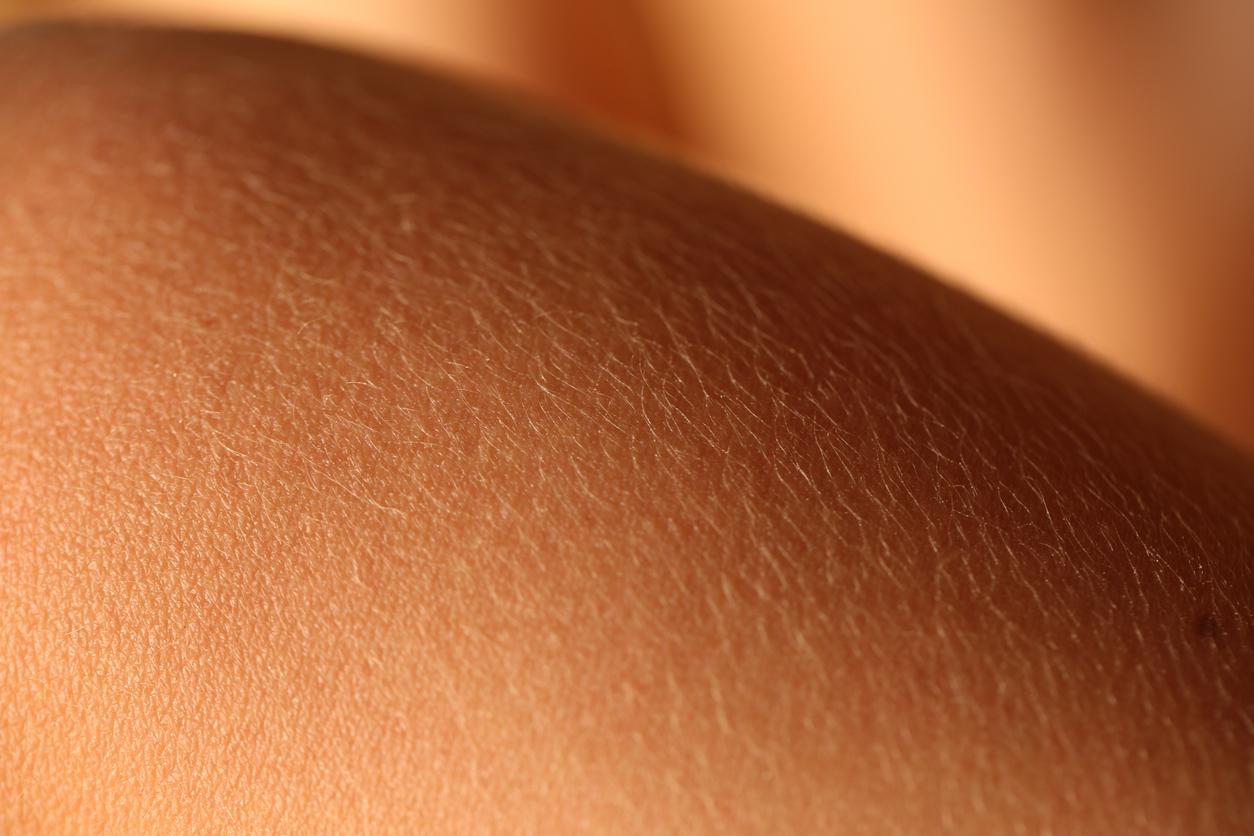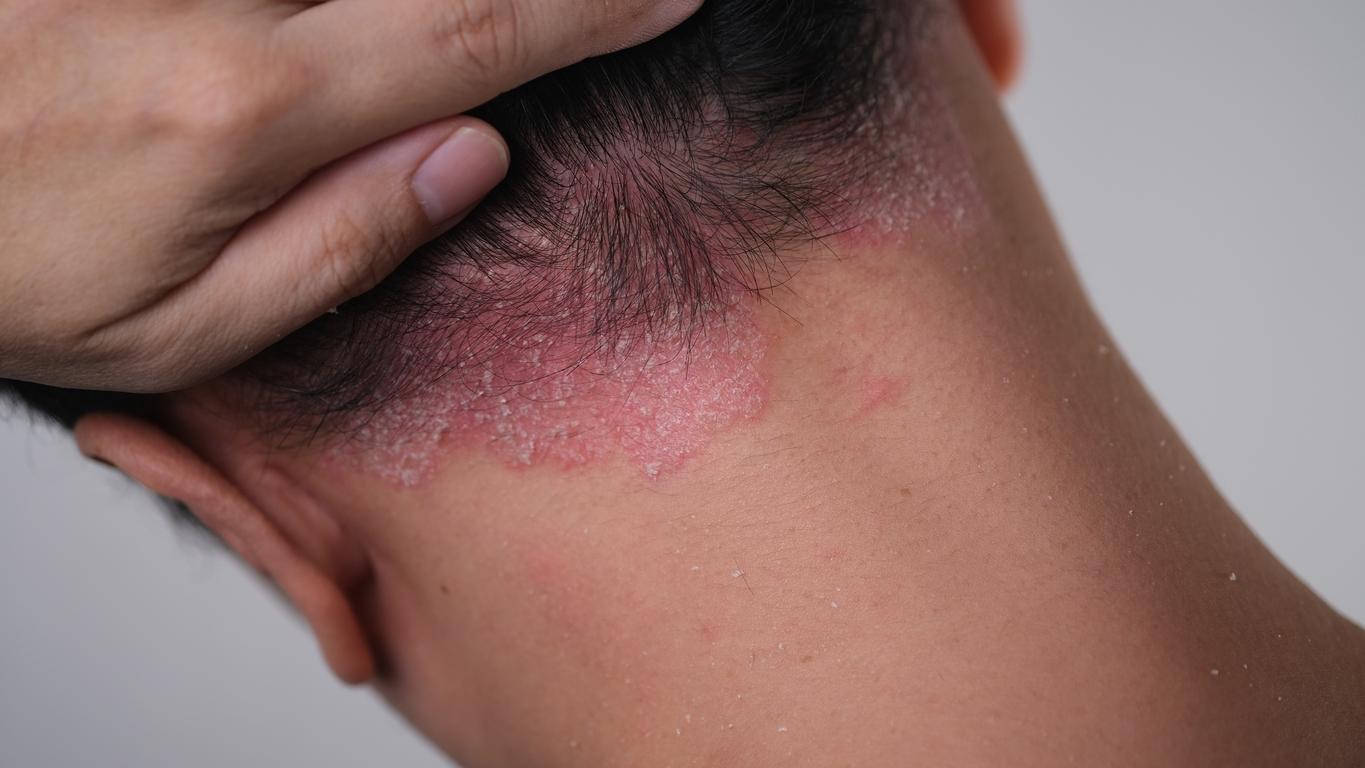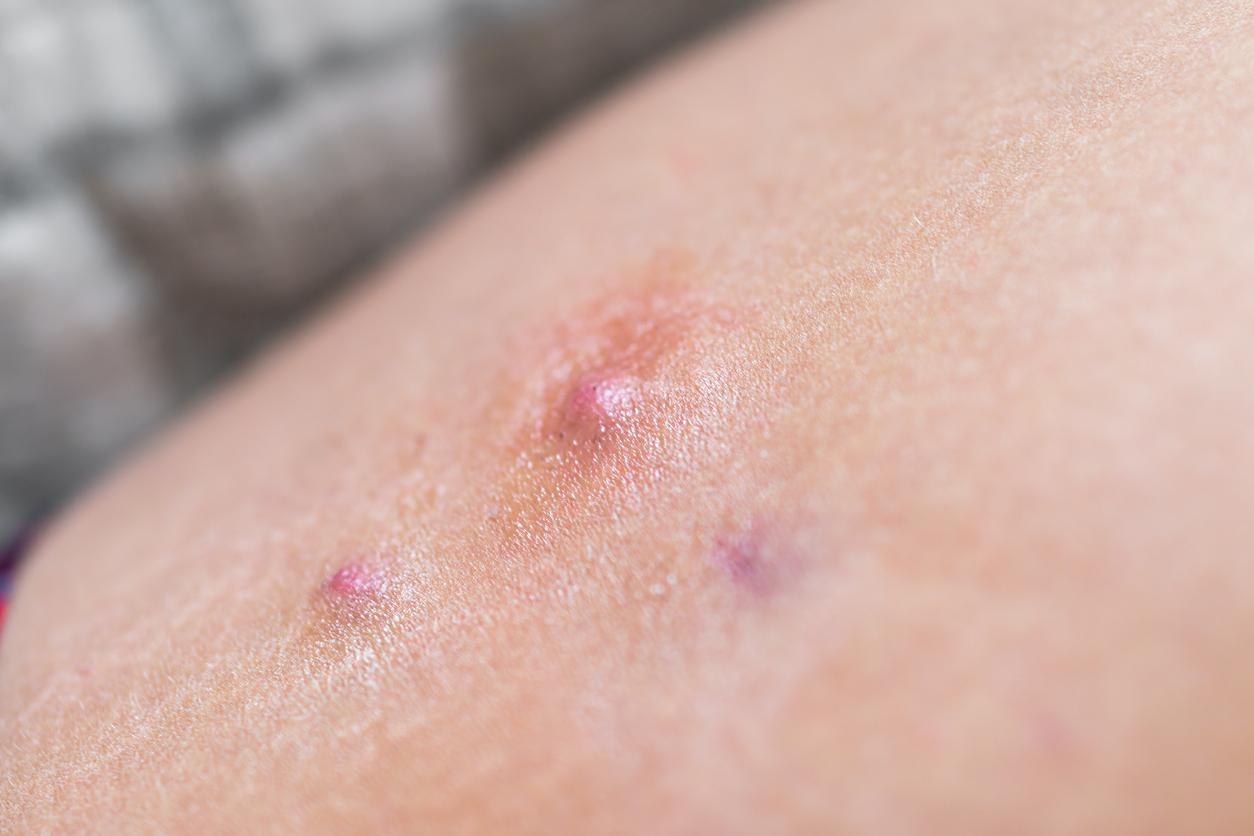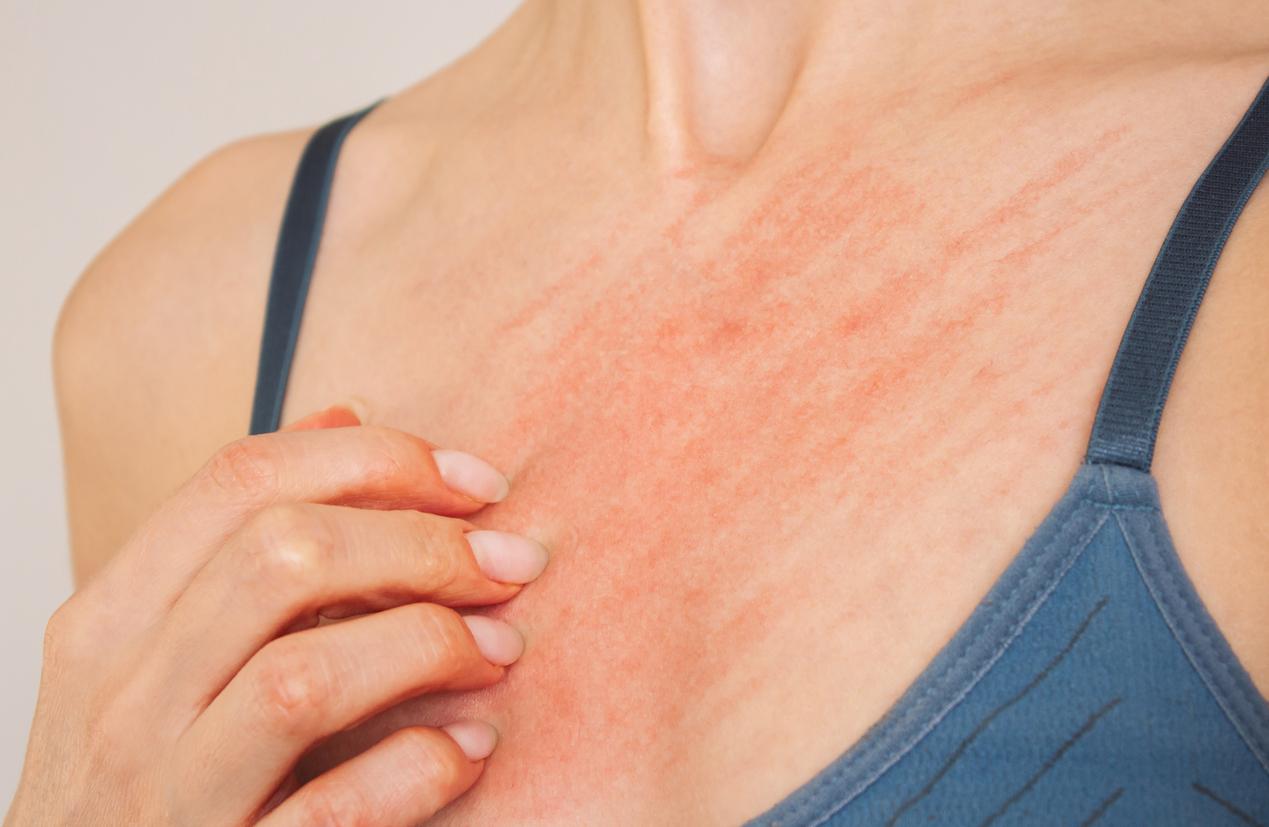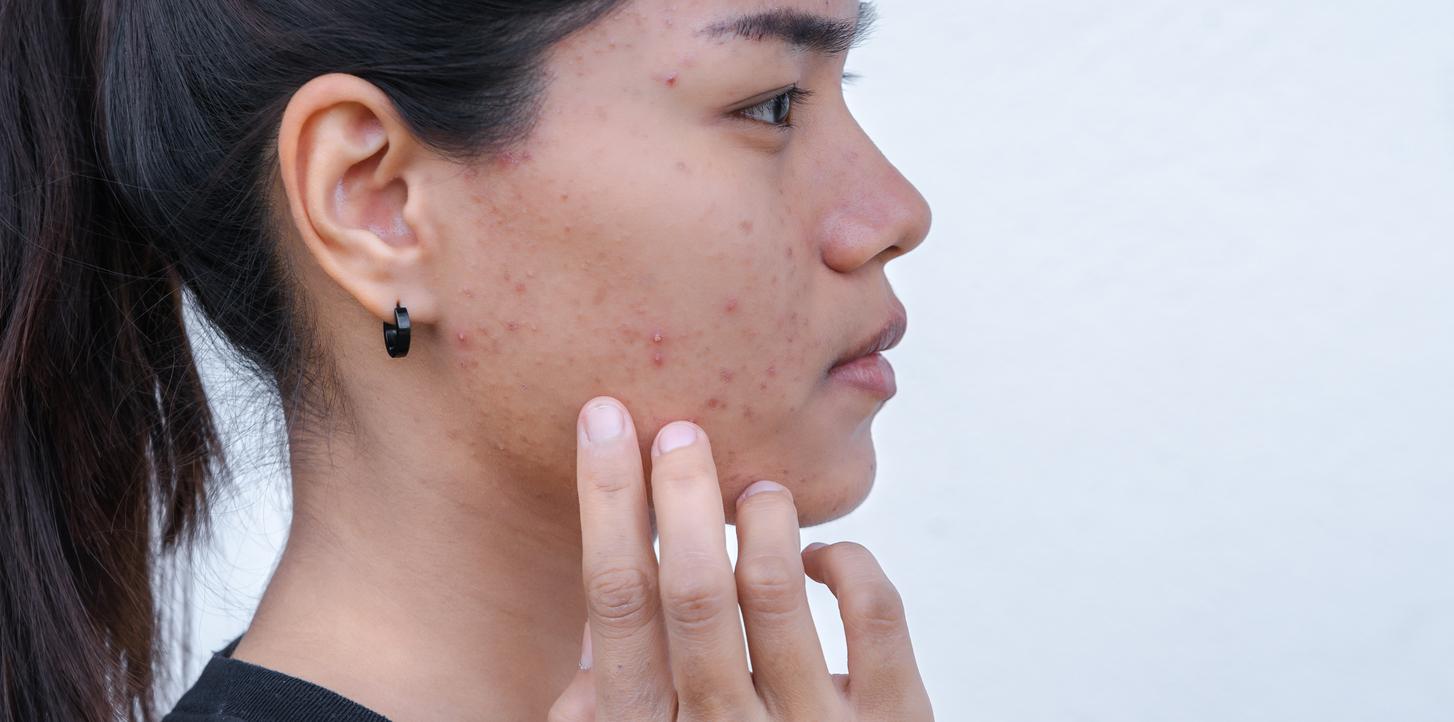Acute itching in patients with eczema does not always respond to antihistamines. The itch signals are transmitted to the brain along a previously unknown pathway that drugs do not target.

- Acute itch involves a different type of cell in the bloodstream than eczema that transmits itch signals to nerves.
- Patients have reported episodes of acute itching often after exposure to environmental allergens.
In addition to a rash, many people with eczema also experience chronic itching. These itches can become tortuous and the antihistamines used to treat them often do not help. American researchers have identified allergens present in the environment as responsible for these episodes of acute itching. They also found that itch often does not respond to antihistamines because itch signals are transmitted to the brain along a previously unknown pathway that current drugs do not target. These results were presented on January 14 in the journal Cell.
Questioning knowledge
The results of this study call into question the neural circuits responsible for itching hitherto imagined. “Years ago we thought itch and pain were carried along the same lines in the nerves to the brain, but it turns out that’s not the case.says lead researcher and dermatologist Brian Kim. These new findings show that there is another pathway behind these episodes of acute itching in patients with eczema.”
The researchers believe that their discovery opens the way to an effective treatment for this itch. “The itch can be infuriatingcontinues the researcher. Patients may rate their chronic itch at around 5 on a scale of 10, but this goes up to 10 during acute flare-ups. Now that we know these flares are transmitted in a totally different way, we can target this pathway and maybe we can help these patients..”
Environmental allergens responsible for acute itching
The typical itch pathway in eczema patients involves skin cells being activated and then releasing histamine, which can be inhibited with antihistamine medications. Acute itch involves a different type of cell in the bloodstream that transmits itch signals to nerves. These cells produce a non-histamine substance that triggers itchiness that antihistamines do not work on. “In patients who experience episodes of acute itching, their body reacts in the same way as in acute allergic peopledescribes Brian Kim. If we can block this pathway with drugs, it could represent a strategy to treat not just itching but other problems, including perhaps hay fever, fever and asthma..”
Several studies have tested a strategy of blocking immunoglobulin E (IgE), a substance produced by the immune system in response to allergens. Allergic patients produce IgE, causing allergic reactions, but its role in itching is unclear. The researchers found that patients reported episodes of acute itching often after exposure to environmental allergens. They also found that eczema patients who make IgE in response to allergens in the environment are more likely to experience these episodes of severe, acute itching. “Environmental allergens actually promote this type of itchingcontinues the researcher. Let’s say a patient with eczema goes to his grandmother’s house, where there is a cat, and that person’s itchiness goes crazy. It is likely that cat hair activates IgE and IgE triggers itching.”
A new therapeutic route
Tests on mice allowed the researchers to realize that when mice make IgE, they start to itch. Unlike standard itch signals in which skin cells release histamine, IgE in mice with eczema activated a type of white blood cell called a basophil. These cells then activated an entirely different set of nerve cells than the cells that carry itch signals that respond to antihistamines.
The discovery that acute itchiness in eczema is linked to exposure to allergens may help sick people avoid things that make them itch intensely, such as animals, dust, mold, or certain foods. At the same time, it offers new targets to treat itching in eczema patients, such as proteins and molecules identified along this newly identified neuro-immune pathway.

.








